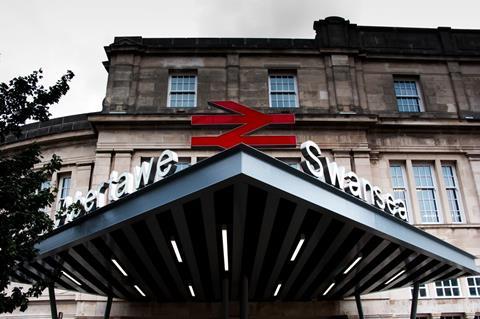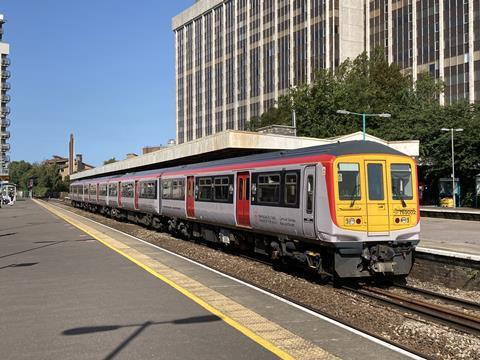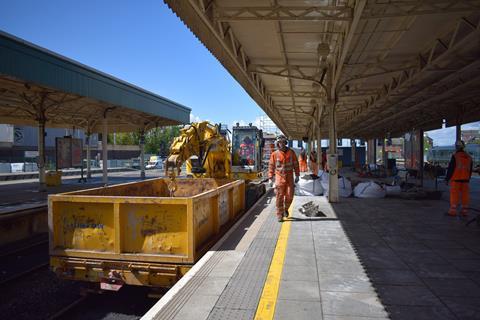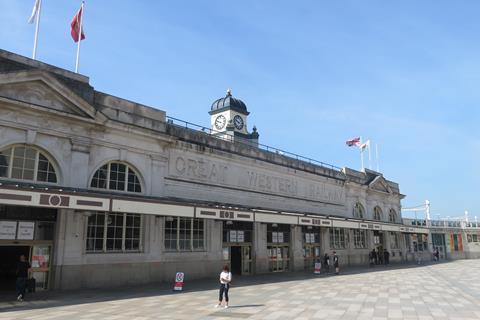
UK: Cardiff – Swansea electrification, a Swansea Bay Metro and the creation of a Wales Rail Board tasked with prioritising proposals for investment have been recommended by the House of Commons’ Welsh Affairs Committee.
Published on July 14, the Railway Infrastructure in Wales report recommends the establishment by this autumn of a Wales Rail Board, comprising the UK and Welsh governments, Network Rail, Transport for Wales and operators of rail services in Wales. This would be tasked with identifying and developing a prioritised set of proposals for infrastructure improvements.

Meanwhile, the UK government needs to set out plans to reform the Rail Networks Enhancements Pipeline and accelerate the delivery of key schemes. Efforts should be made to develop synergies between climate mitigation efforts, such as protecting against rising sea-levels, and measures to protect transport infrastructure, as the committee sees ‘significant opportunities’ to link projects and budgets. It emphasises that Covid-19 ‘should not be used as a pretext for halting investment as, in the long term, this would further cement the car as the transport mode of choice’.
The committee wants to see the UK government bring forward proposals for greater connectivity between Swansea, Cardiff and Bristol, including reinstatement of the planned electrification of the Cardiff — Swansea main line. Development of a Swansea Bay Metro would integrate the public transport network including the routes running west to Pembrokeshire and Carmarthenshire.
Wider UK benefits
The committee says the evaluation of rail infrastructure proposals should factor in strategic ambitions to strengthen connections between ‘all parts of the UK’, in the light of the forthcoming publication of the Union Connectivity Review.
The report says a full strategic case should be prepared for the upgrading and electrifying the line from Holyhead to the West Coast Main Line, in order to to maximise the benefits of HS2 for Welsh passengers, reduce journey times, increase freight capacity and improve connections.

The MPs suggest that HS2 should be reclassified as an England-only project, rather than England & Wales. This would allow the Welsh funding settlement to be recalculated using the Barnett formula to include an additional allocation matching the funding for HS2 in England, ensuring that Welsh passengers receive the same advantage from investment in the new line as those in Scotland and Northern Ireland.
In terms of devolving the responsibility for rail infrastructure to the Welsh government, the report suggest that the case for further devolution would be ‘compelling’ if it would deliver clear benefits for passengers and freight users. However, given that few benefits to users have been identified, the committee emphasises that the benefits of the existing arrangements are considerable. Given the significant liabilities associated with rail infrastructure, it says the economies of scale under the existing structure help to limit the resources that might otherwise have to be committed to maintenance rather than enhancement.

‘There is a compelling case for greater investment in rail infrastructure in Wales to improve journey times for passengers, strengthen connectivity with the rest of the United Kingdom and reduce carbon emissions’, said Chair of the Welsh Affairs Committee Stephen Crabb.
‘Reaching our net zero targets will require a significant investment in rail electrification. We believe that this should result in a reconsideration of the short-sighted decision to cancel the electrification of the Great Western Main Line from Cardiff to Swansea.
‘While there will always be voices calling for the further devolution of rail powers, it’s clear that what passengers most need is both of their governments, as well as the rail operators, working together.’



